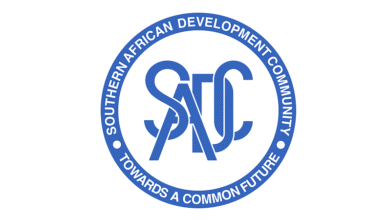Zimbabwe’s Currency Devaluation Sparks Economic Turmoil

The Zimbabwean economy has been rocked by a 43% overnight devaluation of the Zimbabwe Gold (ZiG) currency, leaving businesses and consumers grappling with the fallout. Less than six months after its April launch, the gold-backed currency faced a steep reduction in value in September, underscoring the nation’s ongoing struggles with inflation and economic instability.
The Impact on Businesses
The devaluation has been particularly challenging for businesses dependent on stable pricing and supply chains. Among them, Innscor Africa Limited, a leading conglomerate listed on the Victoria Falls Stock Exchange, has highlighted the profound challenges it faces. The company’s trading update for the quarter ending September 30, 2024, painted a grim picture of increased operating costs and disrupted profitability.
“The overnight devaluation of the local currency late in the quarter introduced further challenges into the operating environment,” Innscor stated. The company’s protein segment, heavily reliant on formal retail channels, was hit hard. Compounding the issue were policy changes such as adjustments to Value Added Tax (VAT) on basic goods and Sugar Excise Duty on beverages, which drove up costs.
Inflation and Pricing Distortions
In addition to devaluation pressures, formal retail channels have been marred by pricing distortions, further straining operations. Route-to-market regulations and fluctuating agricultural output have exacerbated the situation for industries reliant on domestic production. Innscor’s management is actively engaging authorities to seek long-term solutions to these challenges, particularly around VAT reforms and cost stability.
Resilient Volume Growth in Some Segments
Despite the setbacks, Innscor reported notable growth in some segments:
- Mill-Bake Division: Strong volume growth driven by investments and strategic pricing.
- National Foods: A 20% increase in aggregate volumes, with the Maize division posting an impressive 82% rise.
- Irvine’s Table Egg Division: A 17% volume increase, spurred by expansion projects.
- Beverages and Packaging: Moderate growth, with Probrands and Probottlers seeing consistent performance.
Other divisions faced challenges. The Day-Old Chick segment contracted by 7% due to drought conditions and VAT implications, while Colcom and Nutrimaster experienced mixed results tied to trade interruptions and agricultural seasonality.
Consumer and Policy Reactions
The devaluation has intensified concerns about the sustainability of the ZiG currency. Consumers, already burdened by inflation, face rising costs for essential goods. Meanwhile, businesses are urging the government to stabilize the policy environment to restore confidence in the local currency.
The Reserve Bank of Zimbabwe (RBZ) has celebrated ZiG’s early adoption rates, but its long-term viability remains uncertain. Without addressing underlying inflationary pressures and inconsistent policy decisions, economic recovery will likely remain elusive.
Zimbabwe’s economic trajectory is at a critical juncture. Policymakers face the dual challenge of stabilizing the currency while fostering an environment conducive to business growth. For businesses like Innscor, navigating this complex landscape will require continued investment, innovation, and collaboration with authorities.
As the nation contemplates its next steps, stakeholders are left questioning whether the ZiG can deliver on its promise or if it will join the list of Zimbabwe’s troubled currencies.




